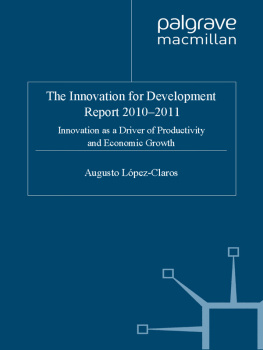
Social innovation is a concept that is present in a wide variety of experiences and in multiple situations. Historically, it has been seen as related to a capacity for social experimentation, collective learning, the creation of knowledge and the ability to transfer it. Today, it is associated with a range of experiences, dimensions and fields within the language of management and economics, and in the social and productive uses of technology. The author makes use of the forms of analysis provided by theories of social change and the multi-disciplinary, long-term approach that is associated with Big History, with its focus on evidence and insights from different scientific and historical disciplines, together with empirical resources that are employed in advanced countries and societies in the construction of innovative environments.
Ander Gurrutxaga Abad has been Professor of Sociology at the University of the Basque Country since 1994. Among his recent works are Occidente y las Otras Modernidades (2008) and Implications of Current Research on Social Innovation in the Basque Country (2011). He has taught as a visiting professor at various universities in Spain and abroad, and is currently Director of the Laboratory on Social Innovation at the University of the Basque Country.
This volume, written by the foremost Spanish student of the sociological dimensions of innovation, focuses on the fact that innovation is not the result of the right economic policies, or a mysterious outgrowth of the appropriate value systems, but a product of certain social contexts, whose properties are still imperfectly understood by social science. Economic policies and legal institutions, especially those that foster investment, human capital formation, and research, certainly help: as do value systems that promote empirical knowledge and reward risk and perseverance. But innovation grows in milieux in which innovators of different types (scientists, technologists, team players, entrepreneurs, risk-oriented investors, etc.) congregate and interact. And the process of innovation takes place in firms and the complex networks they form, at the local, national and international environments. This book discusses these processes at the micro, meso, and macro levels, and it includes both a critical evaluation of theories of innovation and an analysis of case studies (Silicon Valley and others), in order to account for the determinants of the emergence of these contexts. This volume is a must for social scientists interested in the knowledge economy, post-industrial society, and the future of advanced industrial countries. Carlos Waisman, University of California, San Diego
Copyright Ander Gurrutxaga Abad , 2013, 2014.
The right of Ander Gurrutxaga Abad to be identified as Author of this work, and of Nick Rider to be identified as translator from the Spanish, has been asserted in accordance with the Copyright, Designs and Patents Act 1988.
2 4 6 8 10 9 7 5 3 1
Published in the Sussex Academic e-Library, 2014.
SUSSEX ACADEMIC PRESS
PO Box 139
Eastbourne BN24 9BP, UK
and simultaneously in the United States of America and Canada
All rights reserved. Except for the quotation of short passages for the purposes of criticism and review, no part of this publication may be reproduced, stored in a retrieval system, or transmitted, in any form or by any means, electronic, mechanical, photocopying, recording or otherwise, without the prior permission of the publisher.
British Library Cataloguing in Publication Data
A CIP catalogue record for this book is available from the British Library.
Library of Congress Cataloging-in-Publication Data
Gurrutxaga, Ander.
Societies of social innovation : voices and arguments / Ander
Gurrutxaga Abad.
pages cm
Includes bibliographical references and index.
ISBN 978-1-84519-513-7 (p/b)
ISBN 978-1-78284-079-4 (e-pub)
ISBN 978-1-78284-080-0 (e-mobi)
ISBN 978-1-78284-081-7 (e-pdf)
1. Social change. 2. Technological innovationsSocial aspects. 3. Social evolution. I. Title.
HM831.G873 2013
303.4dc23
2013021490
This e-book text has been prepared for electronic viewing. Some features, including tables and figures, might not display as in the print version, due to electronic conversion limitations and/or copyright strictures.
Acknowledgements
I do not wish to begin this book without thanking all those who have made this book possible, beginning with my faithful and able readers and correctors, Josetxu Urritikoetxea and Auxkin Galarraga. My thanks go to them. All my colleagues and co-workers at Innolab the Laboratory of Social Innovation at the University of the Basque Country have been an inexhaustible source of questions, many of which, I fear, I have perhaps not been able to answer. They are Alfonso, Javier, Alvaro, Auxkin, Luca, Sandra, Marcos, Mikel and Eduardo. My conversations with historian friends have also been very useful to me thank you, Manolo. Special acknowledgement is due to my family, who have been witnesses to my fixation with this book and have suffered my excessive didacticism and interest in the subject. Thank you, Pili, Beat and Olatz. And to my Masters students, the real focus of attention for and criticism of the arguments contained in this book. And to all my colleagues and friends, who with their advice and criticism have helped me bring this text to a successful end.
Introduction
The context in which the current concern for social innovation has arisen is connected to the consequences of the institutionalization of knowledge society. There is general agreement, explicit and implicit, to accept this term as one of the definitions of the present. The concept it identifies examines a reality that, in many instances, slips between our fingers. I am not saying this because its definition lacks descriptive force or analytical capacity but because this effective substitution of knowledge society for industrial society is difficult to prove, and even when we wish to accept it as an empirically demonstrated reality the success of the concept conceals an unease that still arises in the wings. I do not mean to say by this that we should deny the expansion of this substitution as a fact but that the supposed collapse of industrial society is slow, and less penetrating than the rhetoric of change and the history of transitions from one society to another might suggest. Knowledge society shares the same common structural features throughout the world: it is based on the generation of new knowledge and the processing of information by the use of information technologies, it is organized in networks, and its activities are interconnected on a global scale and communicated and transferred through electronic highways and the connective power of communications networks.
The results are diverse: countries throughout the world are converted themselves into knowledge societies to differing degrees and with divergent rhythms and levels of intensity. Some societies and economies attain similar levels of development when they have started out with markedly different cultures and national and regional histories, employing different institutions and with very different forms of social organization. The general hypothesis is that there is no one model or single method of moving towards the construction of knowledge societies, in the same way that one cannot say that there is only one way to achieve economic growth. The examples at our disposal are sufficiently eloquent to oblige us to be cautious when it comes to laying out generalizations. Against those who seek to impose a one-dimensional view, our position is that there is no single universally valid model. On the contrary, the world is riddled with anomalies by comparison with what is commonly considered the dominant model, the westernNorth American one.










